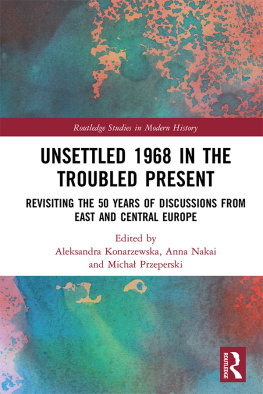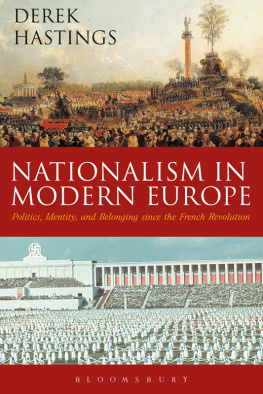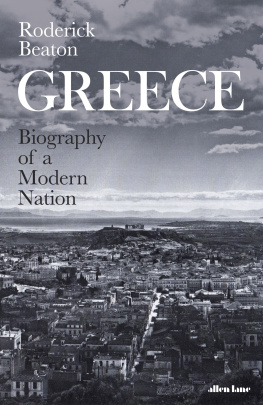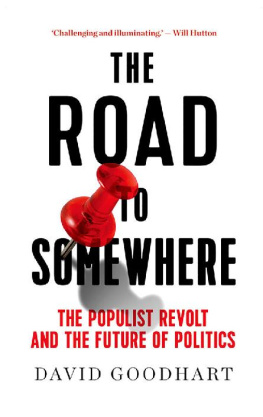Generation Identity
Original: Die identitre Generation , London: Arktos, 2013.
First English edition published in 2013 by Arktos Media Ltd.
Copyright 2013 by Arktos Media Ltd.
All rights reserved. No part of this book may be reproduced or utilised in any form or by any means (whether electronic or mechanical), including photocopying, recording or by any information storage and retrieval system, without permission in writing from the publisher.
Translation: David Schreiber
Editor: John B. Morgan
Cover Design: Andreas Nilsson
Layout: Daniel Friberg
ARKTOS MEDIA LTD
www.arktos.com
Markus Willinger
Generation Identity
A Declaration of War Against the 68ers
ARKTOS
London, 2013
This book expresses exclusively the opinions, views, and claims of the author, Markus Willinger. Neither the author nor this book is representative of one or all of the European identitarian groups and organisations.
Table of Contents
Foreword: The Front Line
by Philippe Vardon
Because we are old enough to face all challenges and have an enormous responsibility towards history, we have made the choice to resist.
Manifeste des Jeunesses Identitaires
(Manifesto of Identitarian Youth), September 2002
People try to put us down Talkin bout my generation
Just because we get around Talkin bout my generation
The Who, My Generation
Abandoned, isolated, atomised, uprooted. Without memory...and thus without a compass for the future this is how they wanted us. More approachable for the merchants, more gullible for the media, more docile for the rulers. But something went wrong with the plan, as the present work shows.
Generation identity is first of all the generation which one would rightly have imagined to be without identity. One supposed it to be purely hedonistic, profit-oriented, individualistic and concerned with the question What shall I do? (with MY life, MY money, for MY career). Instead it has astonished the whole world by proving itself to be far more profound, with each person addressing the question Who am I? first, and then Who are we? Our leaders, who have spent their entire lives in pursuit of enjoyment (and who continue to do so all the more), hardly expected that some dissidents would spring up from within this generation to choose being over mere appearance, and being over having. Perhaps we have found evidence of the famous millennium bug, since this is a real error in their software...
They imposed unchecked mass immigration throughout Europe in order to push their march towards triumphant multiculturalism and a global village. What a huge mistake! While the economic, social, cultural and security consequences of this immigration are no doubt terrible, like the zealous quislings of this flood, I too shall shout out loud and clear that immigration is an opportunity! Am I being provocative? Sure, but I see immigration as an opportunity because it has enabled the reawakening of our people of our peoples. For it is in the face of the Other that the notion of we acquires meaning. It is in the face of the Persians that the Spartans and Athenians discovered themselves as Greeks. Likewise, it is through the confrontation of young Frenchmen with extra-European immigration, and hence their new awareness of mutual differences, that the identitarian dream has emerged. This (often difficult, sometimes violent) dream has turned into a resistance movement, and shall tomorrow turn into a Reconquest.
They have defiled our flags, erased our frontiers, twisted the very names of things. With them, the homeland is no longer the land of ones fathers! It turns into a nebulous idea, an abstraction, a construct. For us it represents the most concrete things of all: our words and songs, our forests and mountains, our bell-towers and castles, our relatives graves and our babies cradles. We carry our flag within us and trace our frontiers ourselves: this is our identity! The agents of the system for killing peoples to quote Guillaume Fayes formidable formula would like to break the chain of our heritage: were here to fix its links.
The identitarian struggle which certainly promotes an ideal and certainly revolves around specific ideas is far more than simply an ideological matter. It is a struggle for continuity (since identity is not the past, but rather that which never passes on), or to put it more clearly: survival. It a struggle which we cannot flee from or reject without losing our dignity as upright men.
Markus Willingers declaration of war no doubt presents some personal considerations since acting as the spokesperson for a group does not mean losing ones unique voice and hence some minor points the reader (just like the present writer) might disagree with. Still, this work sums up many of the ideas and concepts of the identitarian struggle that began (in this form) in France in 2002 and which now finds echoes across many sister-countries. This text, therefore, falls directly within the sphere of the challenge launched by the youngest identitarian militants (through the movement Gnration Identitaire, founded in August 2012 and made widely known by the symbolic occupation of the mosque in Poitiers) against the generation of the 68ers, who hold prominent posts of responsibility in almost all sectors of society and who are largely responsible for the chaos we must currently face.
I shall bring this Foreword to a conclusion by inviting all readers to support an idea that we have always sought to keep alive in our way of envisaging the political-cultural struggle we are waging and which I believe determines a number of reactions and attitudes. Some people, steeped in a form of morbid romanticism (which may have its charm in the musical or literary sphere but which proves disastrous in the sphere of political activism), complacently mope about in their self-appointed role as the last men standing. They perceive themselves as the rear guard of a dying world, and see their fight as all the more beautiful because it is clearly destined to be lost. This attitude is both comforting (for if the struggle is already lost, there is no point in making any inevitably vain efforts) and completely suicidal.
On the contrary, the identitarians are the avant-garde, or better still the front line! Far from being the last expression of a world in its death throes, they are the first pangs of a new birth (according to the very etymology of the word revolution). To use a different image, the identitarians are not those who are watching a dying flame, but rather are a thousand torches which light up in the night.
Reach out your hands too, my friend, grab the torch and set it alight!
(Translated by Sergio Knipe)
Philippe Vardon (b. 1980) holds a degree in Political Science. In 2002, he was one of the founders of the identitarian movement in France, starting with its youth movement, Jeunesses Identitaires, and he also assisted in the creation of Bloc Identitaire, the primary identitarian organisation in France today. He was the chief spokesman of Jeunesses Identitaires for five years. In 2007, he formed a local branch of the identitarian movement in his hometown of Nice called Nissa Rebela which has participated in the local elections. He ran for mayor of Nice in 2008, and in subsequent elections he has run for other positions. Additionally, he now leads Les Identitaires, the think-tank of the French identitarian movement.
Editors Note
T his book makes frequent use of the term 68ers, which is a common term in Western Europe but not in the English-speaking world. It refers to the generation that came of age around 1968, and which was responsible for many of the Marxist-inspired political and social upheavals which took place at the time, most particularly the massive strikes in France during that year. A group of students and sympathisers occupied the administration building at Paris X Nanterre University in March of that year in order to protest what they perceived as class discrimination in French society, causing the universitys administration to call in the police to end it. Protests continued there for the next two months, and by May, they grew to encompass many other schools and groups, bringing about the largest general strike in history and effectively shutting down the country, nearly causing the collapse of the government. While similar protests took place throughout many nations at the time, the French strike was by far the largest and most effective. Although the 1968 protests were unsuccessful in achieving their goal of instigating a revolution, they nevertheless marked the beginning of an age of liberal political reforms in those nations. These reforms, and their consequences, have continued to dominate the political and cultural landscape of Western Europe ever since, and have been termed the new social movements. Many of the student demonstrators of 1968 went on to assume prominent roles in politics, academia and culture in subsequent years, and were able to use their positions of authority to further inculcate the ideals of their youthful radicalism into the mainstream. 68ers is therefore similar to the term baby boomer that is used in the United States to refer to those Americans born in the generation after the Second World War, many of whom became hippies, anti-war activists and other would-be revolutionaries during the 1960s, and some of whom went on to become crusaders for liberal causes in their later careers.








